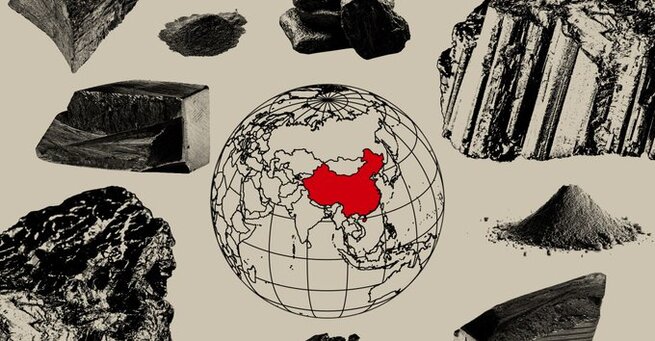
China’s Rare Earth Export Controls Threaten Electric Vehicle Industry
Are you wondering how China’s new export controls on rare earth minerals might affect the global electric vehicle market? Rare earth minerals, especially neodymium, dysprosium, and terbium, are essential components in the magnets powering everything from smartphones to military equipment and electric vehicles (EVs). As China tightens its grip on these critical resources, questions arise about supply chain disruptions, rising costs, and the future of sustainable transportation worldwide.
For decades, China has dominated the mining and refining of rare earth minerals, controlling over 90% of the global supply. These minerals are crucial for producing powerful magnets used in EV motors and many other high-tech applications. Recently, China introduced stringent export regulations requiring companies to obtain special licenses to export rare earths and magnets. This move follows retaliatory tariffs amid escalating trade tensions, especially with the United States. These export restrictions pose a significant risk to major automakers who rely heavily on these materials for manufacturing electric vehicles, potentially leading to supply shortages and increased prices.
Experts warn that the world is approaching a critical supply crunch. Ambrose Conroy, a notable investor in rare earth mining operations, emphasizes that within 90 days, the shortage could become an urgent global issue. This looming crisis threatens to stall the shift toward electric mobility at a time when demand for EVs is surging worldwide. Automakers and tech companies alike face challenges adapting their supply chains, which could push up costs for consumers and delay innovation in battery technology and EV motor efficiency.
Beyond electric vehicles, rare earth minerals are indispensable in producing everyday electronics and military-grade technology, amplifying the impact of China’s export controls across multiple sectors. As governments and industries scramble to diversify their sources, investments in mining operations outside China, such as in the Democratic Republic of Congo, are increasing. However, building new supply chains and refining capacity will take years, leaving the near-term future uncertain.
Understanding China’s rare earth export strategy is crucial for investors, automakers, and tech manufacturers aiming to navigate this evolving landscape. As demand for electric vehicles accelerates, securing access to rare earth minerals will be a top priority — one that could reshape global manufacturing, trade policies, and international relations in the coming years.
𝗦𝗲𝗺𝗮𝘀𝗼𝗰𝗶𝗮𝗹 𝗶𝘀 𝘄𝗵𝗲𝗿𝗲 𝗿𝗲𝗮𝗹 𝗽𝗲𝗼𝗽𝗹𝗲 𝗰𝗼𝗻𝗻𝗲𝗰𝘁, 𝗴𝗿𝗼𝘄, 𝗮𝗻𝗱 𝗯𝗲𝗹𝗼𝗻𝗴. We’re more than just a social platform — from jobs and blogs to events and daily chats, we bring people and ideas together in one simple, meaningful space.